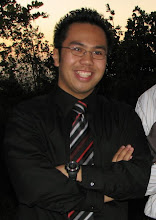 Above: Snuck onto OSUs campus during their Spring Break. Here's the Thompson Main Library from the Oval.
Above: Snuck onto OSUs campus during their Spring Break. Here's the Thompson Main Library from the Oval.SO MUCH TRUTH WITH OHIO'S SLOGAN:
SO MUCH TO DISCOVER!
So we're now at a grand total of 17817 miles, with 2 board exams on the table (one later this week) and the last day of rotations creeping closer and closer each day...
After a six-hour trip beginning with breakfast at Tim Horton's (we don't have one in Chicago), lunch at a Bob Evans in Indy (we have one in Chicago, but I haven't been to one in a while), and ending with me breaking a $20 bill to pay $1.60 in tolls, I'm quite tired. However, I'll have to say that I just had the roadtrip of a lifetime. It wasn't just fun, but I learned a lot about myself, different aspects of medicine, American culture, and enjoyed every moment of it. When I started medical school, I did not imagine myself doing something like this.
If you're from Ross or another school (Caribbean or not) that has the opportunity to travel to do rotations, I highly recommend it. I know that many people like to stay in one place to do rotations to save on money and limit travel, but there's just so much out there to discover. I've always loved traveling (the roadtrip has always been a staple of bonding for my family) and I thought that this would be an excellent opportunity to combine what I love to do along with my love for medicine. I saw some of the benefits of hitting the road when I had my May roadtrip last year. However, unlike then, this road trip still had aspects of personal exploration, but also now combined learning more about my field and where I may want to go in the future.
In terms of learning, one of the peeves that I had with traveling was that every four weeks I would have to change up my routine as each hospital had their own way of doing things. And it wasn't just in terms of attendings, but each hospital had a different set of protocols or ways of handling situations (i.e. one hospital had a "electrolyte protocol" to automatically replace low levels of electrolytes like sodium or potassium, while another hospital needed specific instructions from the doctor to do so). Some hospitals were almost completely had full electronic medical records, while other hospitals were still primarily chart based. Every four weeks, just about when I was ready to finally adapt to the new system, I was about to start packing to head to the next site on my trip.
However, that in itself is one of the beauties of traveling. I think that learning different ways that hospitals work can help in the long run of adapting where ever one ends up to be. It also gives a wide-perspective on how different attendings from different locations have different approaches. It turns out that everyone has different ideas on how to do things, but for the most part end up with the same endgame. I took what I liked from each region and attending and took mental note so I could develop my own clinical style when I start operating autonomously as a resident (provided I match first!).
On the traveling end, I was so glad to visit 3 places I have never been before. The beauty of the hills of Binghamton, the charm of the people in Decatur, and the educational pride seen in Columbus have positively added to my experience. I perhaps have a better hold of what types of cities I'll be looking for when I start my residency search this fall. A good lifestyle to balance the stresses of residency, charming people, a unique city personality are some of the criteria I'll be looking for.
So there it is, after miles (and hours of driving), I am quite tired, but I have my Step 2 CS examination to take later this week. And then, Surgery... and then Step 2 CK... and then more electives... The train of tests, requirements, and rotations never ends, but with each mile I travel, there is always a new sense of adventure. I really thank my university, Ross, for giving me the ability to put a trip like this together. Traveling has definitely been one of the defining points of my medical school experience.
For now, though, I am glad to be home.


